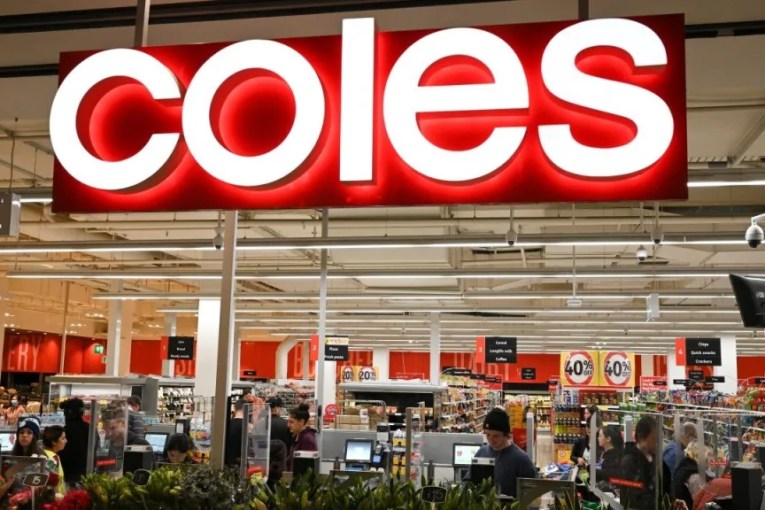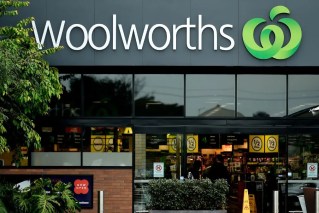Alan Kohler gives The New Daily readers reasons to feel better in 2021


In his debut column for TND, respected finance journalist Alan Kohler talks about the positives we can expect in 2021. Photo: TND
It has been a miserable 12 months, that’s for sure, but there are a few reasons to feel better about 2021, apart from three elephants in the room: The virus, America and China.
I’ll deal with those pesky pachyderms in the days ahead.
Today, in my first column for The New Daily, I want to focus on the things we can be more cheerful about.
First, 2020 wasn’t the beginning of another Great (Long) Depression, as understandably feared in March.
Why not? Because after the GFC, monetary authorities (central banks) decided to do whatever it takes to combat recessions.
They stepped that up last year, and after disastrous post-GFC fiscal austerity in 2010, governments couldn’t justify not doing whatever it takes as well, since their own decisions had caused the unemployment and the interest rate on their debt was 1 per cent or less.
Even the OECD, the IMF and the Financial Times have given the green light to unlimited government spending, and warned them not to be hasty in reversing it.
So, massive fiscal stimulus (which should really be called compensation) followed massive monetary stimulus from central banks – that is, money printing and rate cuts to zero and below.
Economic textbooks tell us that these things work with a lag, so they’re still flowing through the economy and powering the recovery.
In fact, most of that compensation money is still sitting in bank accounts because it couldn’t be spent during the lockdowns.
Treasury estimates that $200 billion has been saved by Australian households, the greatest amount of savings in history. Expect us to experience one of the biggest domestic spending booms ever seen.
In the United States, meanwhile, savings amount to $US1 trillion – with more to come from President-elect Joe Biden.
Businesses are getting ready to catch that money and transfer it to their own bank accounts: Private sector job vacancies in Australia rose 24.2 per cent between August and November to a record high of 228,800.
That’s only a quarter of the 942,100 people still unemployed – but even in good times there are usually three unemployed people for every vacancy.
Meanwhile, the Reserve Bank is still pumping cash into the system.
In December it bought $20 billion worth of government bonds, bringing the total bought in 2020 to more than $100 billion, using freshly created money. That’s about half what the government actually issued.
Similar work has been going on around the world, except more so: the four main central banks (US, UK, Europe and China) have collectively gushed US$9 trillion of fresh money in 2020, which has mainly gone to propping up government spending.
As it happens, that’s about the same amount as the IMF estimates government debt in those countries increased by in 2020.
- Related: Just how low can interest rates go?
So to be clear: World governments have pumped trillions of dollars into their economies, funded by printing new money; the debt is owed to themselves, or rather to their central banks.
This has a name – Modern Monetary Theory, which describes the fact that governments that issue their currency can’t go broke, and the only limit on their spending is the prospect of inflation, not the amount of money available.
Australia is only half pregnant with MMT because the RBA governor Philip Lowe insists that there is no such thing as a free lunch. Meanwhile governments elsewhere are munching on cost-free cash for lunch.

RBA governor Philip Lowe. Photo: AAP
Maybe the bill will be presented later in the form of inflation, as Dr Lowe confidently predicts, maybe not. But central banks have been printing money for 10 years so far and inflation hasn’t stirred.
But that’s a matter for the long term.
The reason to be optimistic about 2021 is that governments everywhere are spending whatever it takes and printing money to pay for it (although the debt is briefly laundered in private ownership before being bought by central banks, to preserve the fiction that central banks aren’t directly funding government spending).
Another reason to be optimistic: The iron ore price is at a record high because the global recovery means China’s exports will boom.
And another: Joe Biden will be inaugurated on Wednesday (local time) and will not only reintroduce America to proper government, but also launch a $US1.9 trillion stimulus program including $US1400 cheques to everybody, which will result in a consumption boom in the US this year.
And finally: 2021 will be the year of the vaccine, and in particular the remarkable, 95 per cent effective messenger RNA ones developed by Moderna and Pfizer/BioNTech.
These have been described as among medical research’s greatest achievements, although the Australian government has managed to buy the less-effective AstraZeneca/Oxford University one.
Oh, and we’ll get it after everyone else too.
But happily for Scott Morrison and Josh Frydenberg, the states have more or less eliminated the virus by locking down against the federal government’s wishes.

Victorian Premier Daniel Andrews was criticised for strict lockdowns. Photo: AAP
So even getting a late, less-effective vaccine to Australians shouldn’t be fatal – either to too many people or the economy – as long as the state premiers continue to ignore the idiots in the federal Coalition and the Murdoch media and lock down as needed.
Can you imagine the outcry over a late, less-effective vaccine if Australia was in the same sort of trouble as Ireland is now (1000 cases per day per million of population, equivalent to 27,000 cases a day for Australia)?
But we’re not in that sort of trouble, and that’s the main reason Australians can afford to feel optimistic about 2021.
It turns out that stopping the disease from spreading is the only thing that matters in a pandemic, and the state premiers did that.
Their efforts should never be forgotten.
Award-winning business journalist Alan Kohler is Editor in Chief of The Eureka Report and an ABC regular. Alan writes twice weekly for The New Daily. Subscribers read him first in our 6.30 am newsletter. Subscription is free.








